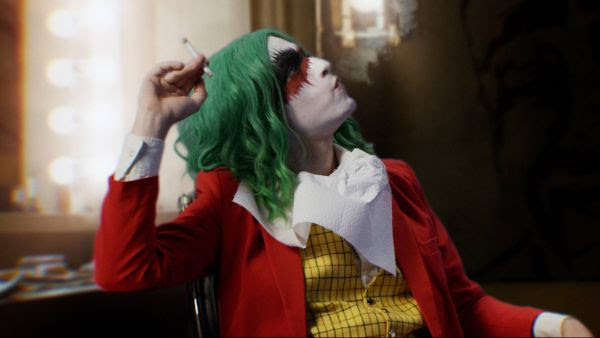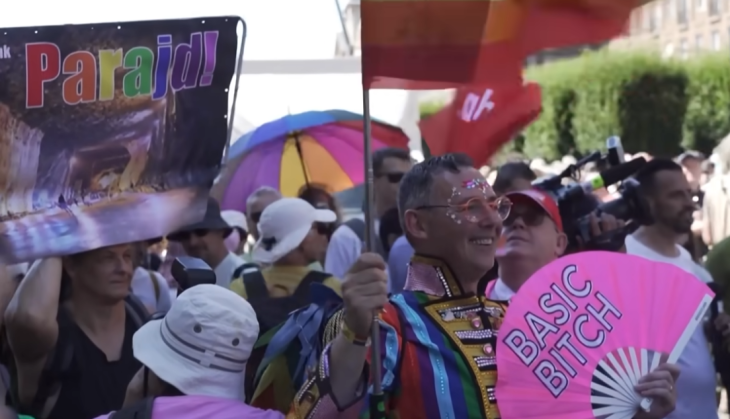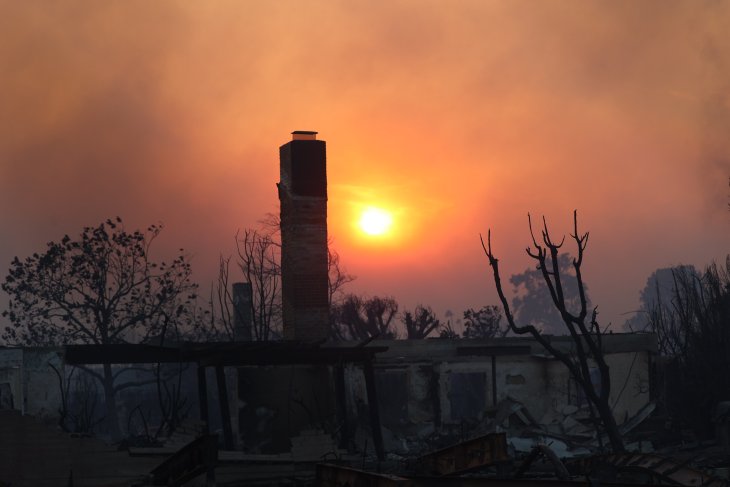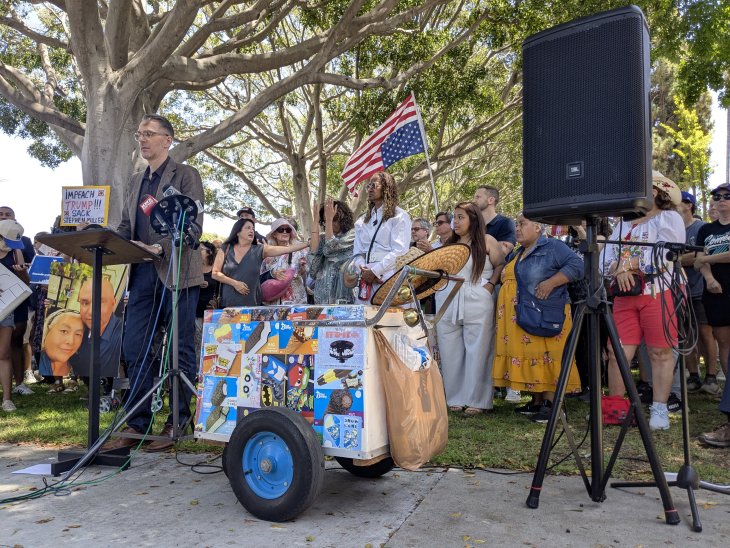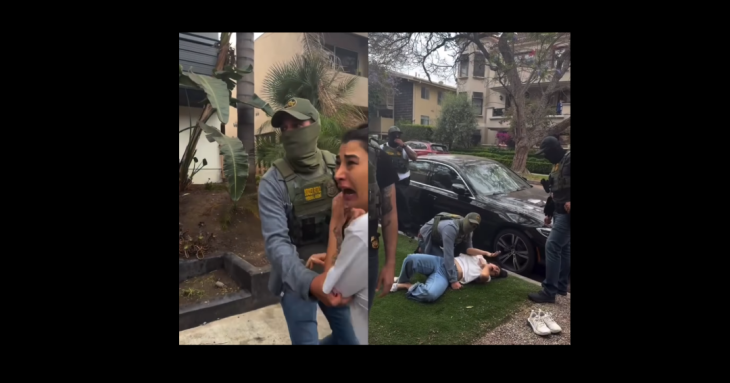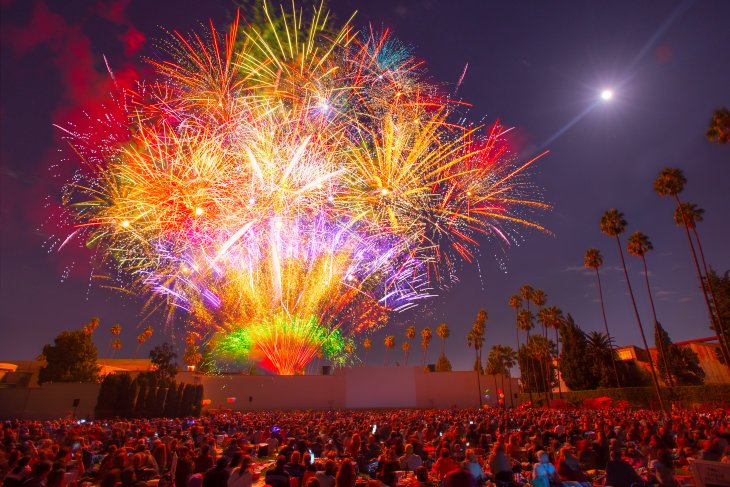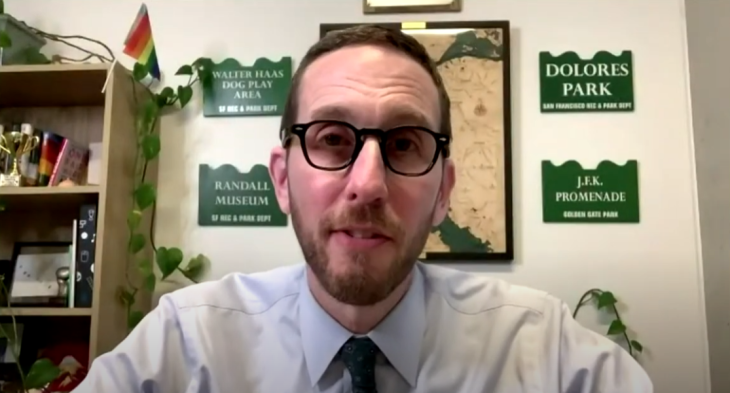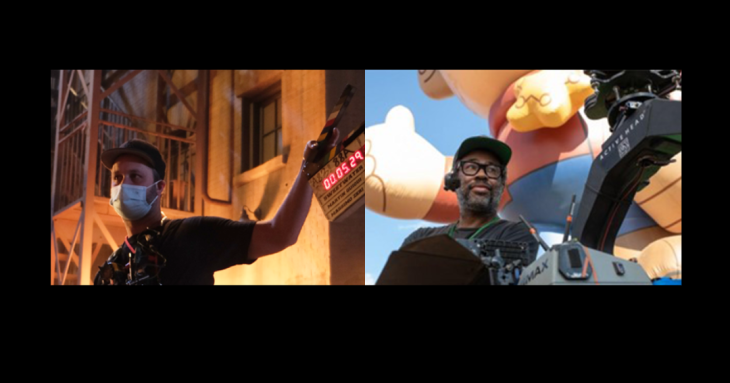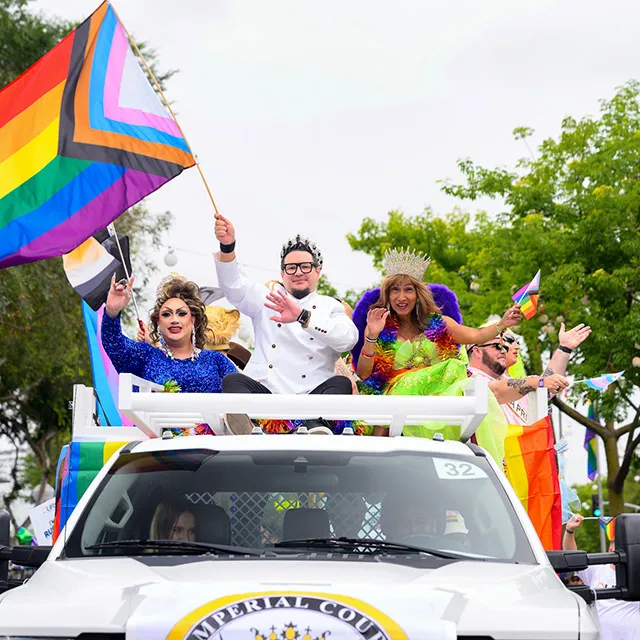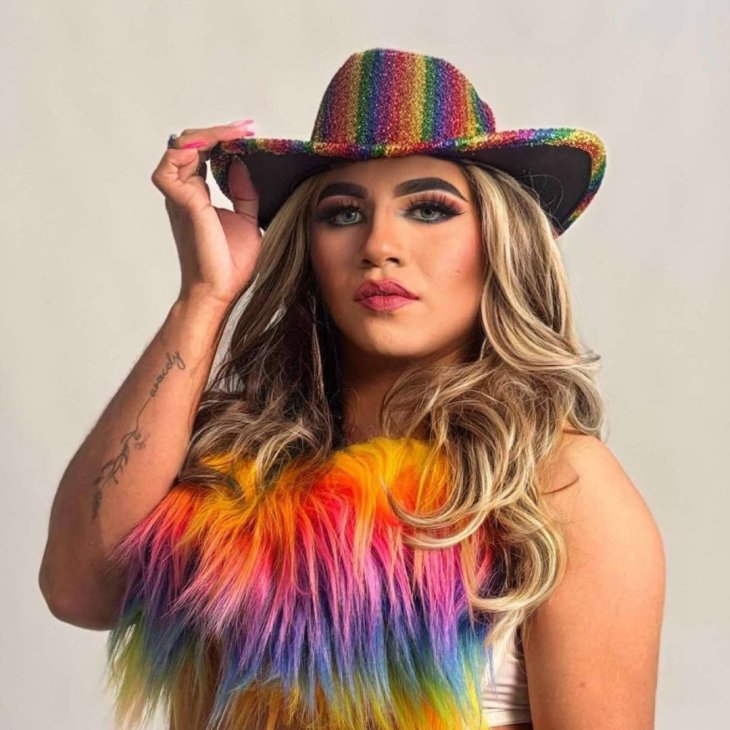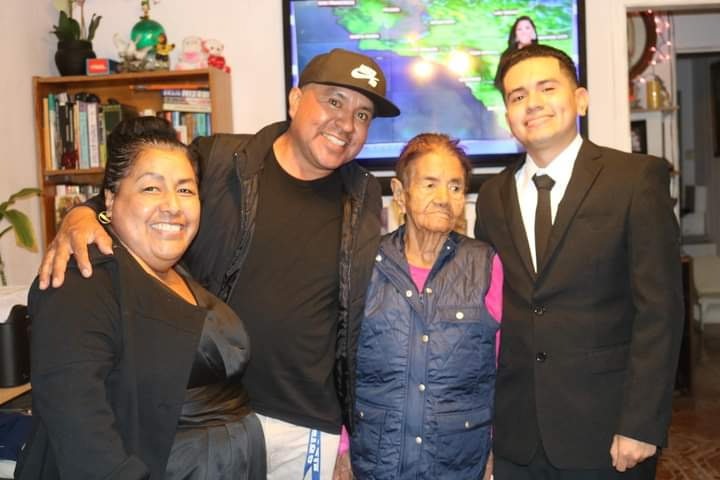Vera Drew on Crafting a Trans Supervillain and Creating Comedy Chaos
By Dolores Quintana
The People’s Joker is an explosive queer coming-of-age superhero parody and so much more. I spoke with the co-writer and director of the film, Vera Drew, about knowing when to stop tinkering with a movie, how to craft a trans supervillain, comedy Freemasons, and meeting the mayor of Wichita dressed like a unicorn.
This brilliant and hilarious film has extended its run at Landmark’s Nuart Theatre in Santa Monica. You can get tickets here. Vera Drew will attend the screening at the Nuart on Saturday, April 20, for a Q&A after the 7:15 p.m. show
The film features a superhero-sized cast of celebrated comedic talent in both voice and live-action roles behind the vibrant kaleidoscope of characters that lampoon the iconic heroes and villains of the DC comics’ world, featuring cameos from comedy multi-hyphenate Tim Heidecker, award-winning actor Bob Odenkirk, Maria Bamford (Netflix’s Big Mouth, Adult Swim’s Teenage Euthanasia), and Scott Aukerman (Between Two Ferns with Zach Galifianakis co-creator and host of the Comedy Bang! Bang! podcast), with Vera Drew, Lynn Downey (Amazon Prime Video’s Daisy Jones & The Six), Nathan Faustyn (SADDLED), and Kane Distler, in his film debut.
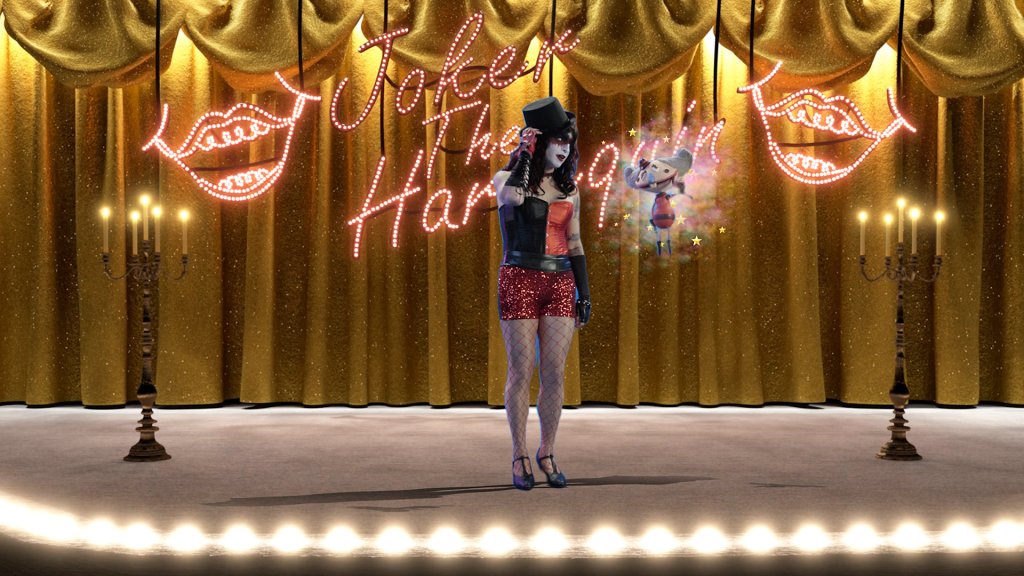
Dolores Quintana: I’m not going to say that the movie wasn’t funny when I watched it by myself, but it was a different experience when I watched it with a crowd of people.
Vera Drew: I’ve always considered it a movie that should be viewed with a group of people. One of the biggest inspirations from the movie is Hedwig and the Angry Inch, which is one of my favorite queer coming-of-age films of all time. But it is also a midnight movie. I think I was really, and it’s a little gauche to say, I was trying to make a midnight movie. On some level, I wanted to make a movie that is fun to watch with all your queer friends. You know, it’s late at night after you’ve had a few drinks. It’s been weird screening the movie. I did a festival screening in Chicago last year at 11:00 am. The movie played very differently then as I am sure it did when you watched it.
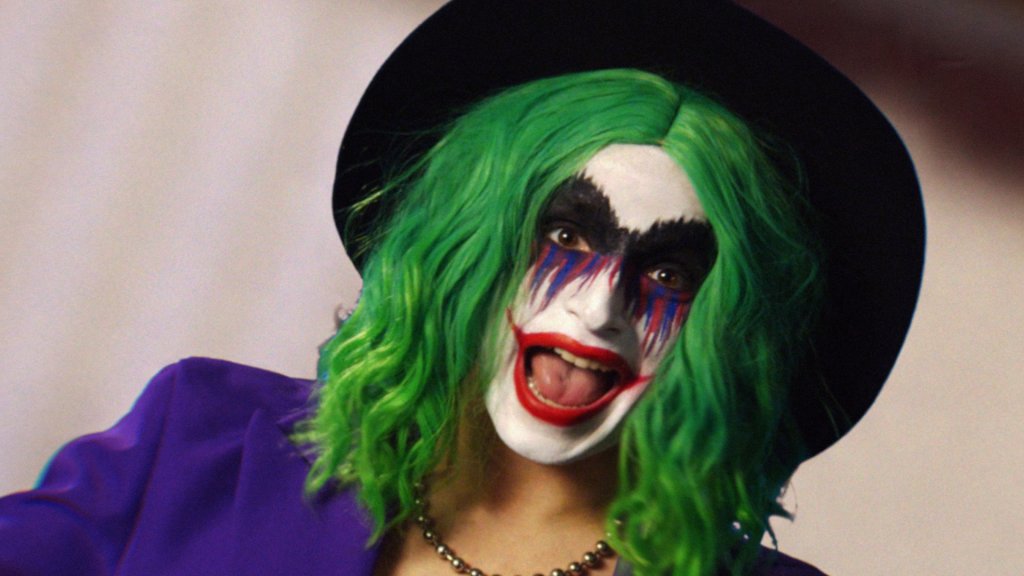
But that’s also what I like about it. It’s very dense with the genres that it’s playing in. I always wanted it to be a movie that, yes, makes you laugh and cry and be disgusted or outraged or horrified or whatever, like everything all at once. But I also like that on repeat viewings, you could have a different experience watching it. For me, personally, when I get to watch it now. Sometimes, the love story hits me harder, like I’m just watching my transition unfold, but with comic book characters.
I think our theatrical cut is just better and funnier than the original cut you saw. I can’t stress enough that if they saw the movie during our first festival run, they only saw a work-in-progress version. This is the definitive version, and I won’t be doing any like George Lucas stuff.
Dolores Quintana: Then you won’t be making Poison Ivy look different or putting new characters in.
Vera Drew: No, it might get another sound pass someday. But yeah, no, I don’t. I don’t want to. Because it’s also so visually dense, I need to restrain myself now. I can’t add more. At a certain point, you have to stop painting the picture.
Dolores Quintana: I’ve heard from several artists; some are musicians and directors. But they always say that sometimes, it’s just so hard to stop tinkering because you’re pursuing that type of perfection of your vision. They said that you might think so, but I could add this and change that. They also say that your perspective changes over time.
Vera Drew: I was making this movie for over the course of four years. It was really just crazy. I can’t believe it, but I was about 30 or 31 when I wrote this movie. I was writing about my experiences from six years old to age 27. I was writing, looking back into the past, and then at every stage of working on it, it became about checking all these different eras of myself. It was also about meeting myself at the level I’m at now and thinking about what these themes are.
It’s because so many of the conversations in the movie are just based on real-life conversations that I’ve had. I also think that filmmaking in and of itself feels impossible. Making a movie so hard. I think being an artist is a struggle. There’s a struggle to meet your limitations as a human being because I remember so many times on this project where I’d have these moments where I wish I could just manifest this shot here without having to work on it. I think that’s part of it too. That makes it hard to stop working on something because I’m a human being making a film. I’m not a spiritual entity making a full actual Universe. I think it’s that you meet your limitations of humanity. You realize how you are not God when you’re making a movie.
Dolores Quintana: I’ve been fascinated with the creation process, where people get the ideas, and how inspiration tells you, “Okay, this would be the best thing to do at this point in the movie. You should just have the hunter-seeker spy machine drop right on this person’s head.” Because that would never happen in real life because, thankfully, those things don’t exist.
Vera Drew: Yet.
Dolores Quintana: That’s right. They don’t exist yet. But that’s been one of my fascinations. But it’s gotta be tough as a creator to do just like hit a wall and think, “Oh, wow, I can’t do that. I can see this in my mind. But how am I going to get there?”
Vera Drew: When Bri LeRose and I were writing the script, I had a movie that I had started writing the year before we wrote The People’s Joker that had a lot of these themes wrapped up in it. When it became a Joker parody, there were even more themes that bubbled to the surface. There was so much we wanted to tell, and it was such a big story because the story is my life story and Bri’s, too. It’s both of us. Joker the Harlequin is as much me as it is Bri. But how do you boil down your life to a 90-minute comic book movie? That was the cool thing about it because, as an artist, I need lines to color in. These are the character archetypes that we’re lampooning that immediately create a cap on the overarching umbrella of this world.
I think specifically with the Mr. J and Joker the Harlequin relationship; it is a relationship where both people have PTSD and are launching it at each other without realizing it. As many queer people, when they find themselves in relationship dynamics, you don’t realize that that is what’s happening until it’s too late. I wanted to create that kind of relationship. But how do you do that? Because we find out Mr. J’s backstory and why he’s so messed up 45 minutes into the movie, right? How do we do that in a way that stays true to the story we’re telling and the genre we’re playing with? We can’t just give them a messed-up backstory. We’ll make them like a traumatized former superhero. Those are the lines that we will color in here.
That’s how it will stay true to this original vision and idea. I love how David Lynch talks about ideas. I feel he gets misinterpreted all the time as being kind of megalomaniacal or his rigidness to sticking to his original idea. You’ll hear him talk about how it’s about sticking with that original idea. But he’s right. As the creative head of a film, you need that lighthouse that you return to and think, “Wait, we’re too in the weeds here. What do we do? Okay, cool. Let’s make them a former Robin. Okay, cool. Joker will start her transition, her medical transition, by diving into a vat of estrogen!” That makes sense because we’re making a Joker parody, you know?
Dolores Quintana: That’s one of the funniest things about the film because people just see this happening, and I think their brains are kind of brainwashed by the MCU and the DCEU to expect certain things. When they don’t see them at first, they’re like, huh? But then it becomes funny to them. Because the longer they watch, the more they start to recognize things they already know and accept in superhero films. It makes it easier, in a way, for people to allow the ideas of the film into their brains.
Vera Drew: I’m glad you brought it up like that because putting the trailer out there has been interesting. It was very interesting because it’s a movie where I’ll be scrolling through Twitter. I’ll have one person calling me a genius who made a masterpiece and another saying that I’m a groomer and that I should get sued and financially ruined by Warner Brothers.
Then there’s this middle ground where people are saying, I’ve just never seen anything like this. What is this thing I’m looking at? I’m with them. We made a movie that doesn’t look like any movie that has ever been made before. That’s what’s exciting about it for me as somebody who loves film and comic book movies. I don’t necessarily want the genre to go away. I would love to see it evolve; I’d love to see it move away from the Marvel model of making these movies for millions of dollars. These comic book movies are boring propaganda movies that desensitize us to war.
It was tough to make a trailer and a poster for this movie because the real experience is watching it. I don’t think the film is for everybody. I’ll never forget we screened it at a festival in Kansas, which was amazing. It was such a fun experience. I met the mayor of Wichita that day, got a photo op, and was dressed like a unicorn. It was really weird.
But I was outside while the movie was playing, and this older man walked out and was vaping. He recognized me, of course, because he had been watching the film. He said, “I just needed to take a break.” I was like, “Hey, that’s fine.” To me, the movie speaks the language of the Internet and transness. I think that if Natural Born Killers was sort of the bubble bursting on MTV style filmmaking, I see this as hopefully the encapsulation of that sort of alternative comedy, lo-fi, mixed media voice that you saw on Adult Swim or Everything is Terrible, or I Think You Should Leave and all those kinds of things.
Dolores Quintana: The film because I took it as a personal statement when I first watched it the first time by myself. I focused on the story you were telling with Joker the Harlequin and Mr. J. When I watched it the second time; it was more about the love story. Also, I took note of the inside baseball look at stand-up comedy, as well as comedy schools like UCB and Saturday Night Live. In the film, it is government-regulated, and it isn’t in real life, but it might as well be to a certain extent. If you want to be in sketch or improv comedy, you must attend one of three schools.
Vera Drew: That’s why we framed it that way. The comedy school in the movie is like the Freemasons and Halliburton kind of merged because that’s what it’s really like, and that’s what my experience with comedy was.
There are so many threads that you can latch on to, and to me, the movie is a love story. More than anything, it is a love story between Mr. J and Joker the Harlequin, but it’s also a story about mothers and daughters. That’s why I dedicated it to my mom. Really, how do you heal from that kind of dynamic when it is as dysfunctional as what we show in the movie?
I would encourage people to see it multiple times because there are so many jokes in it, and every single shot has multiple jokes happening at once. But there are a lot of different threads to latch on to, and those are the kinds of movies that I love. I love stuff that is almost too ambitious in all the themes and archetypes that it is trying to explore at once.
Dolores Quintana: I think those are some of the most successful movies. I think there’s a weird viewpoint that everything has to be very cut and dried in films about structure: first act, second act, third act, arc of the character, blah, blah, blah, blah. And who cares? You’re making your own movie; why don’t you do it your way?
Vera Drew: I think even at a script stage, and I don’t want to spoil the ending of the movie, but we reach a point in the film, about an hour in, where all of the loose threads are sort of wrapped up, except for two major ones. They were tough threads to close up because they specifically related to Joker’s relationship with her mom and coming of age.
Those are two things that are ever-evolving. Even in the love story and how it resolves in the movie, I didn’t necessarily want it to feel like a definitive end or a conclusion was drawn. There was something very freeing in that because we’ve reached the edges of this story and what we can close up here. So, let’s lean into the fact that we’re just in the fifth dimension. We’re tying up thematic threads on a soul level rather than a specific story level. I wanted that to sustain throughout the movie.
That happens at the end of the movie, with how abstract and weird it gets by the end. But, I believe in the specificity because, as you said, the movie is very personal and based on my life. When you tell a story with that level of specificity, it’s the opposite of what an executive would say to you to do if I showed the script for this movie and was, like, trying to pitch it around. People would say, What? Nobody knows what this Ben Folds song you’re mentioning is. What are you talking about, kid? Get out of my office!” Okay, they wouldn’t call me a kid.
Dolores Quintana: They like doing that, though. Like yelling,” Hey you, kid!”
Vera Drew: But then the audience sees it. I can’t tell you how many things in the movie I thought, “That’s too crazy. That’s a crazy specific thing that I’m including that nobody will ever relate to except for me.” But all of those moments—I’ve had the experience of watching them resonate with people, both cis audiences and trans audiences and everybody in between. It’s quite cool.
Dolores Quintana: I don’t think you can make movies with the idea, in my opinion, that you’re going to appeal to certain people. You just have to do what seems right, and people will gravitate towards it. But that Ben Folds song, do I specifically get that reference? No. But as the film went on, I got a general idea, and now I want to go look up the song so I can listen to it, and then I’ll get it, especially the next time I watch the film. That’s something that’s involving for audiences. I think you don’t have to explain everything to them. Because if it’s exciting and it’s meaningful to them, they’ll search it out for themselves,
Vera Drew: I think generally that audiences don’t even necessarily know that that’s what they want. I know audiences are fed up with movies and where mainstream films are at. It’s hard getting people to go to theaters to see indie films because people are so sick of the big mainstream projects. I think the real problem is those movies are dumbed down too much. They’re tested. They do test screenings that change the artistic voice in a million different ways. So, by the time it gets to the public, it’s for nobody. They tried to make it for everybody. So now it’s for nobody.
I think that with The People’s Joker, I always knew what I was getting into. These characters are very divisive; it’s wild how much more toxic the DC fandom is than Star Wars. That’s been the most mind-blowing thing to me because I’ve been a lifelong Star Wars fan. For the record, Star Wars fandom has been toxic since the invention of Star Wars. It is not new to the Disney era. I am shocked, but I get it. These characters mean a lot to people.
They are modern myths; you can project a lot onto them. You could watch Todd Phillips Joker and have a take, like my take when I watched it. That movie resonated with me as a trans woman because it was about somebody who was getting left behind by the medical system. His family turns his back their backs on him. He’s completely exploited by society, and he just wants to make people laugh. He just wants to be a comedian, and they won’t even let them do that. I related to that so much as a trans woman who came out in comedy and had issues with their family, and getting medical treatment as a trans person is so hard.
Then, somebody else with a completely different experience could watch that movie and see it as a rallying cry for disaffected white men. There’s a lot that can be projected onto these characters. I think I knew that going into it. I’m not sure how aware my other collaborators were; my co-writer was not aware. Bri, for the record, doesn’t watch comic book movies. The only ones she’s ever seen are Suicide Squad and Batman Forever. Those are the only two, and I told her to watch them while we were writing the script.
I knew we were throwing a little bit of a Molotov cocktail at something and would be doing it in a way that wouldn’t be for everybody. So, I might as well make it specific and autobiographical. There’s something freeing to that because I needed to tell my story. I needed to share the story that I tell in The People’s Joker, and there is something about making it a Batman parody that made it a lot more freeing and took any pressure off of worrying about its accessibility to cis audiences or whatever.
Dolores Quintana: You did a great job with that, in particular, framing it within that specific arena. A lot of people are going to be able to vibe with it once they watch it. It’s going to mean something to them whether they are trans, especially if they’re trans or LGBTQ, but I also think some cis people are going to react positively as well because there are many things that they could relate to in it.
Vera Drew: After our very first screening at The Toronto Film Festival, this middle-aged woman came up to me after the screening, and she was crying. So, at first, I thought, “Oh, God, what is this gonna be?” This middle-aged cis woman asked me, “Can I hug you?” I said,” Sure.” We hugged, and she said,” I don’t know how to articulate what I just saw. I feel like I understand how to talk to my daughter more now, having watched this movie tonight.” She has a trans daughter. I never thought that [would happen]; I made the movie to process my complicated relationship with my cis mother. I never thought I’d have a mother of a trans woman come up to me and say, “Thank you for making this.”
I think we live in a time where even if people aren’t queer, their experience is pretty queer. Many people in the States especially feel very left behind right now. They’re not represented. With that in mind, anybody can relate to this movie because that’s what it is about. I wanted to tell a trans story, that was, yes, a trans story and a trans-coming-of-age story. But first and foremost, it’s a coming-of-age story, and all of us come of age; trans people just do it externally and in a way that is a lot more physically visible.
I think it’s also cool and exciting to do that in a cinematic space. I think there should be a lot more art about transitioning. I’ll see trans people and queer people all the time say things like, we should be talking about queer joy. Does every piece of queer art need to be trauma porn? I’ve even gotten criticism about how you could make the Joker a trans woman. The Joker is a murderer, and you think that’s going to help trans women? I think I made a movie with a queer villain, and I live in a country where queer people are villainized every single day.
I talked about trauma, and I think every trans filmmaker or queer filmmaker, any filmmaker, can talk about trauma because living is very traumatic, and it’s true to our story. And you know what? There’s so much queer joy in The People’s Joker. There’s realism and optimism because I don’t like queer joy being thrown around when all it means is like assimilating into cis society. I’m sorry, but my experience as a trans woman is different than that of a cis woman. My relationships are different from that of cis people. I’m not trying to make art that is showing, “Hey, I’m just like you.” But I think you can do it while still talking about the experience just because everybody can relate to coming of age and feeling disaffected by the society they live in.

